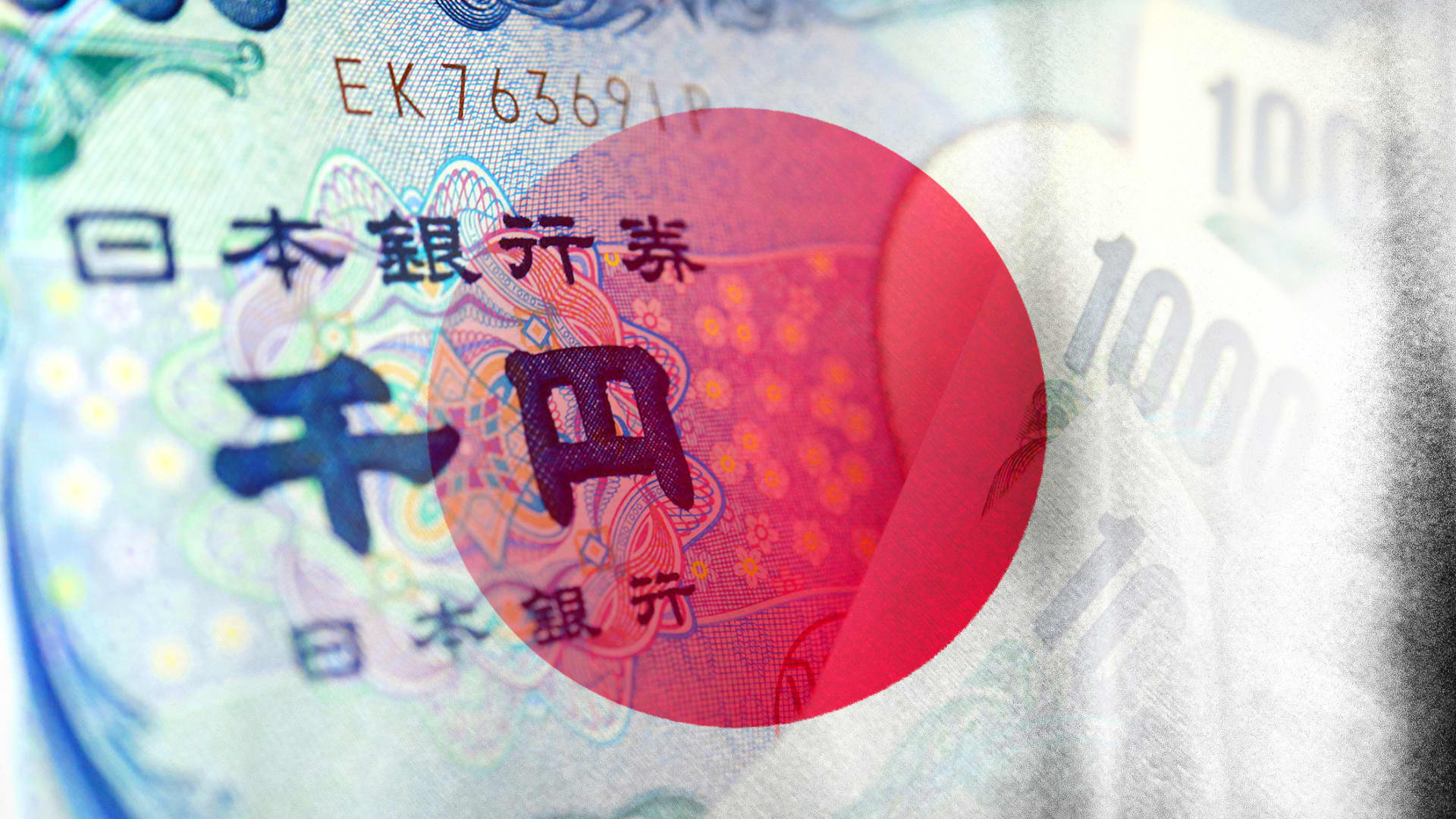The Japan flag is juxtaposed against a Japanese yen bank note.
Javier Ghersi | Moment | Getty Images
The yen slipped past 155 against the U.S. dollar on Thursday, touching a new 34-year low against continued strength in the greenback.
The weakness comes as the Bank of Japan is due to release its monetary policy decision Friday and in spite of verbal warnings from Japanese authorities.
Some market watchers had speculated that the 155 level would prompt intervention after the currency languished at multi-decade lows for a month.
“For the BOJ to support the yen, it should acknowledge that policy has been too accommodative, that the next hike is as imminent as in June, and that the terminal rate would be higher than priced by the market,” Shusuke Yamada, head of Japan currency and rates strategy at BofA Securities Japan, said in a Tuesday note. Still, he said that’s unlikely at this week’s meeting.

The yen’s weakness has also been fueled by a stronger dollar. Stubborn U.S. inflation has spurred comments from Federal Reserve Chair Jerome Powell that suggest rate cuts may not come in the next several months.
“The Japanese authorities have stepped up verbal intervention, but it seems unlikely to be effective given that the move in the currency appears to reflect dollar strength against most currencies rather than being specific to the yen,” Idanna Appio, portfolio manager at First Eagle Investments told CNBC.
Appio said this week’s BOJ meeting will be key for investors as they monitor inflation forecasts in light of the weaker yen, higher oil prices and strong wage growth.
Closing in on an intervention?
The yen has weakened 4.2% since the BOJ’s March meeting, worrying Japanese authorities and investors.
There has also been talk of a potential “coordinated intervention” with South Korea. If enacted, analysts believe such action could politically and economically benefit both nations, if it succeeded in supporting the yen and the Korean won.
As much as markets would like to see Japanese authorities take decisive action to stem the yen’s fall as soon as possible, analysts say it is unlikely that the central bank or the Ministry of Finance will act on it right away.
“The FX tail will not be allowed to wag the dog,” Vishnu Varathan, head of economics and strategy for Asia at Mizuho Bank, wrote in a note.
Varathan said yen weakness is a policy constraint, not a catalyst for the BOJ. He noted that the Japanese central bank will likely stick to its “dovish restraint” when it comes to tweaking rates. Instead, he said, authorities could opt for intervention through flexible bond purchase signals.







